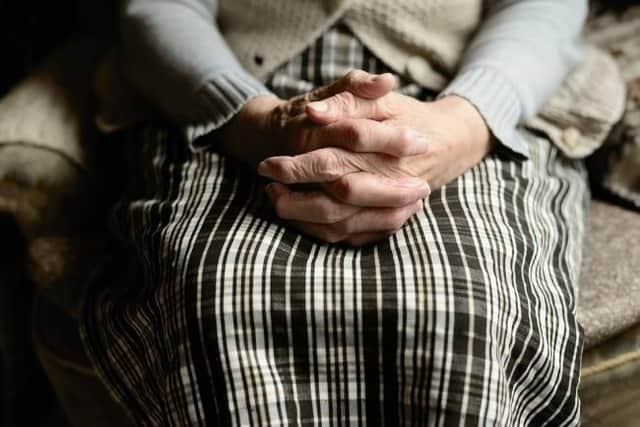Cost-of-living crisis: Why people in Scotland are worried by the concept of 'warm banks' or 'warm spaces'
But this year we are facing a growing injustice, where more and more people will be simply unable to afford to stay warm in their homes this winter. We believe now is the time to talk about ‘warm banks’.
Organisations across Scotland have been discussing with the Poverty Alliance the best response to cold homes this winter. The focus of these discussions has been how to get cash into the pockets of those who most need it, and how to ensure that community-based services are able to respond to increasing need. As part of these conversations, there has been an increasing discussion around ‘warm banks’ or ‘warm spaces’.
Advertisement
Hide AdAdvertisement
Hide AdWe have discussed this with our members, with a wider group of civil society organisations, and with people with direct experience of poverty in our Community Activity Advisory Group and in End Poverty Edinburgh – the successor organisation to the Edinburgh Poverty Commission.


We’ve spoken to people living in poverty and many are uncomfortable with the concept of ‘warm banks’. There was no criticism of those individuals and organisations who want to help people stay warm this winter, but we were told:
“Warm banks give me the chills.”
“The focus should be helping people be warm within their homes.”
“The idea of warm banks completely flies over the face of human dignity and human rights.”
“It could be counterproductive because you are putting responsibility on people to go outside and find heat rather than helping them heat their homes.”
If warm banks do happen, there were some suggestions to do them well:
“It's important that the community sector leads on this.”
“Can the reason for being there something other than keeping warm, like a film screening or activities?”
“Community activities, communal meals or other things are great, but when we can be there by choice rather than trying to just keep warm.”
Advertisement
Hide AdAdvertisement
Hide AdThe first duty of government is to protect people from harm. But even with the UK Government’s actions on fuel bills, too many households will still be left with bills that are much higher than last winter. Many simply do not have the incomes to pay for them.
We cannot fill this gap with voluntary actions based on compassion. The experience of food banks has shown that – even with massive expansion – they are still not enough to meet people’s needs.
Government at all levels has allowed emergency support to become hard-wired into our system, forcing people to rely on charity and community solidarity rather than making sure their incomes are adequate to feed everyone in their household.
The common humanity shown by those who provide crisis support to people in need should act as an example to government. Their failure to tackle poverty in our wealthy society is a shocking injustice.
The focus and responsibility of government at all levels should be ensuring people have enough money to keep their own homes warm. Increasing people’s income through a cash-first approach, in particular by investing in the benefits system, is the best way to do this.
Some things the UK Government can do immediately is to reverse the unjust £20 cut in Universal Credit made last year and to commit to making sure social security benefits rise at least in line with inflation.
Don’t short-change people by linking to average wage increases. Beyond that, the Scottish Government could help families and children by expanding free school meals entitlement.
Government at all levels also needs to ensure the organisations helping people in poverty at the grassroots are given sustainable funding to stop them being burdened with rising costs and uncertainty, just at the time when people need them most.
Advertisement
Hide AdAdvertisement
Hide AdIn the medium to longer term, government can make sure that climate justice and net-zero ambitions mean investing in a future where every home is warm and easy to heat. Our politicians can work to redesign our economy and rebalance the distribution of power and wealth in our country, ensuring that people have the money they need to heat their homes and meet their other basic human needs.
As we were told clearly by one community activist:
“We should prioritise having money in people's pockets so they can choose where to go and do and what to do to keep warm.”
- This article was written by Ewan Aitken, chief executive of Cyrenians; Polly Jones, head of Scotland at The Trussell Trust, and Peter Kelly, director of the Poverty Alliance.
Comments
Want to join the conversation? Please or to comment on this article.